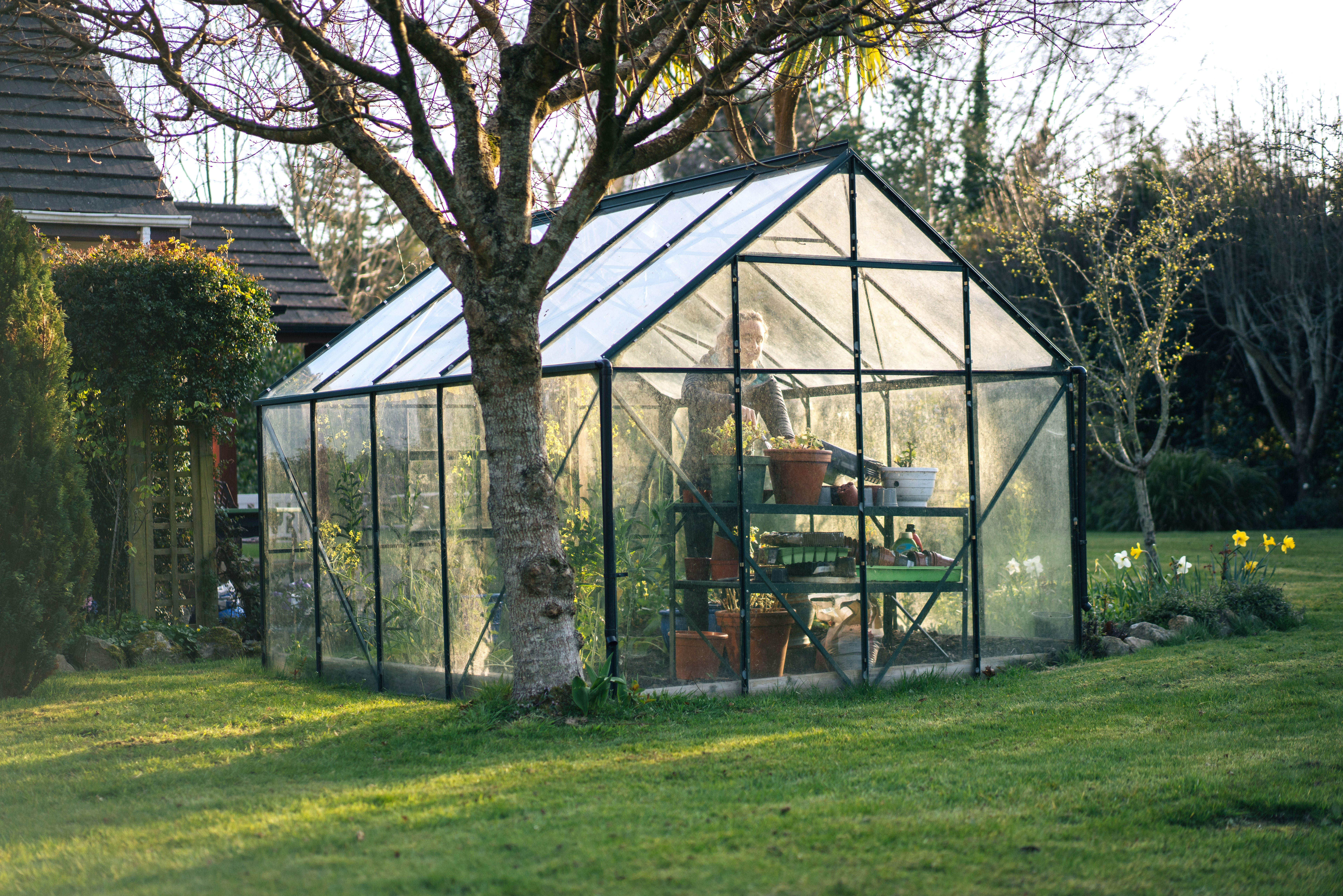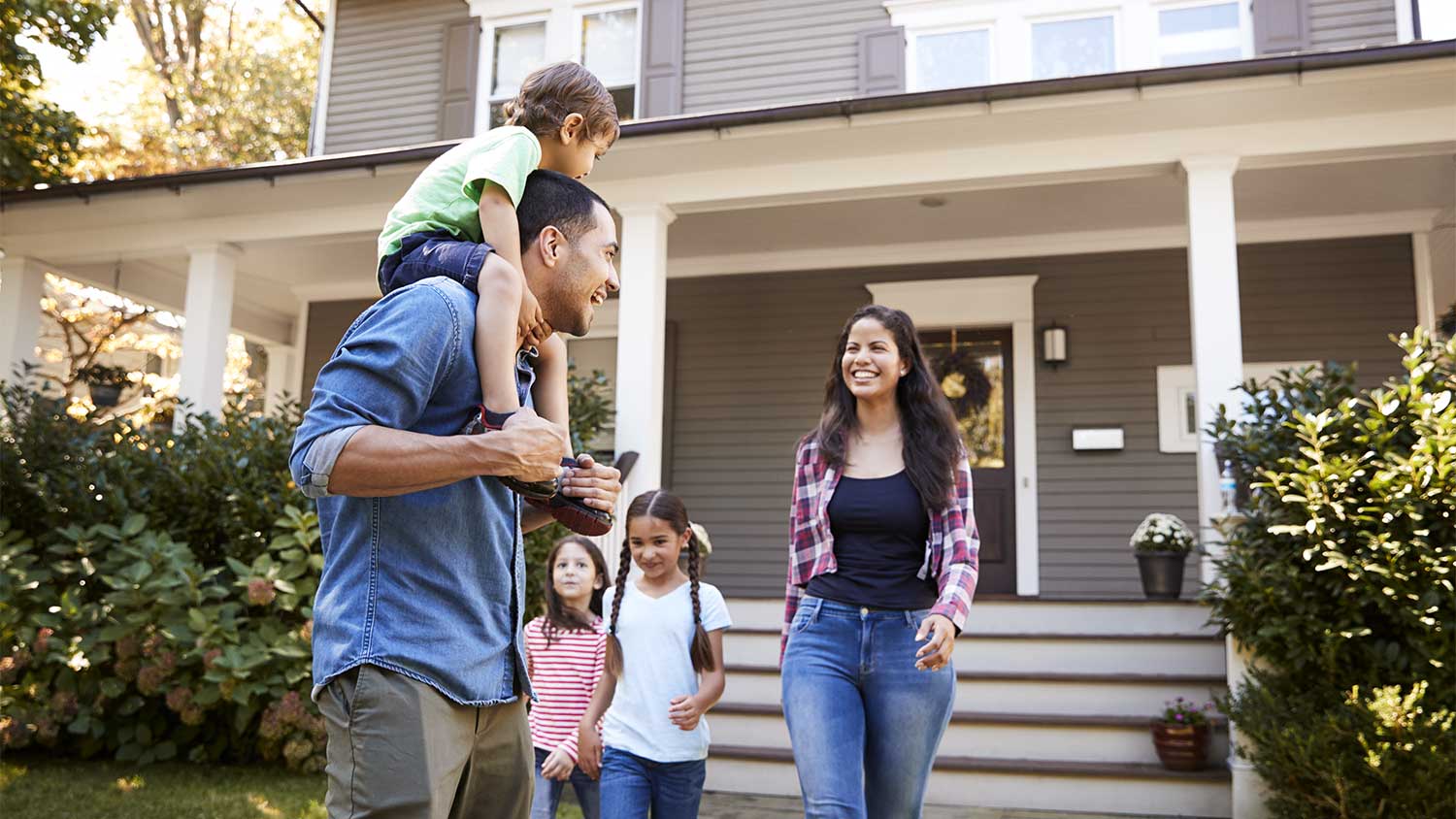
While it isn't easy to expand your property, you can consider building up. The cost of adding a second story has quite the range. We'll break it down here.
Home building costs depend on your project and location. Check with a local pro for your specific job.
The cost of building a new home in Washington, D.C. is roughly 32% higher than the national average.
Size has the biggest price impact; the average D.C. home is just under 2,000 square feet.
Other cost factors include the foundation type and finishes.
Basements and crawl spaces are the most common foundations in D.C.
Don’t forget to include local D.C. contractor costs when estimating the price to build your home.
The cost to build a house in Washington, D.C. runs between $200,419 and $658,823, or $411,037 on average. New home construction prices in D.C. are anywhere from 24% to 44% higher than the national average, with the typical home costing 32% more to build in the nation’s capital. These costs will depend on the size of the home, number of bedrooms, foundation type, and exterior and interior finishes. Contractor costs will also impact the overall price.
Building a home in Washington, D.C. costs more than many other parts of the country, but there are ways to keep costs down. Pay attention to various factors that can drive up the price to build a house in D.C., such as the size of the home (square footage and number of bedrooms), type of foundation, and the finishes, both outside and inside.
The cost to build a custom home can range anywhere from $125 to $650 per square foot, with the average sitting right around $200 per square foot. The higher end of this range accounts for building luxury homes or homes in large cities. The size and type of house you choose will also affect what you’ll pay.
According to the Federal Reserve Bank of St. Louis, the median home size in the greater D.C. area is 1,982 square feet, for an average cost of $396,400. The table below breaks down price ranges by square foot.
| Home Size (Sq. Ft.) | Average Cost in D.C. | Typical Price Range |
|---|---|---|
| 1,000 | $200,000 | $125,000–$650,000 |
| 1,500 | $300,000 | $187,500–$975,000 |
| 1,750 | $350,000 | $218,750–$1,137,500 |
| 2,000 | $400,000 | $250,000–$1,300,000 |
| 2,200 | $440,000 | $275,000–$1,430,000 |
| 3,000 | $600,000 | $375,000–$1,950,000 |
It’s helpful to have an idea of the total construction cost based on the number of bedrooms, since that will likely be the first thing you decide. You can expect to pay $132,000 to $158,400 per bedroom. Note that the added cost comes from not only the additional square footage for the bedroom but also larger living spaces, additional bathrooms, and utilities to support additional occupants. The average home in the U.S. today is 2,200 to 2,500 square feet and has three bedrooms.
Here are the new construction home costs based on the number of bedrooms at the average price of $200 per square foot.
| Bedrooms | New Home Price Range in Washington, D.C. |
|---|---|
| 2 | $264,000–$316,800 |
| 3 | $396,000–$475,200 |
| 4 | $528,000–$633,600 |
| 5 | $660,000–$792,000 |
The cost of your foundation will come down to where you live, the soil conditions, and the type of foundation that’s best for your home.
Unless you’re well-versed in construction, you’ll probably want to lean on a structural engineer to help you determine the correct foundation type and inspect the foundation after its completion.
The most common types of foundation for homes in the D.C. area are basements and crawl spaces, but some homes may also be built with a concrete slab foundation.
| Foundation Type | Cost in D.C. (Per Sq. Ft.) |
|---|---|
| Basement | $26–$45 |
| Crawl space | $8–$24 |
| Pier and beam | $8–$16 |
| Slab | $7–$21 |
Exterior finishes, from the siding to the shingles on your roof, will account for $33,000 to $79,000 of your overall home-building costs. You and your team will have a lot of decisions to make depending on the exterior style you’re going for and the best options for your local climate, among other factors. Things like high-end roofing materials and gutters will increase your cost but also provide a greater ROI.
| Exterior Finish | Average Cost in Washington |
|---|---|
| Basement | $26–$45 |
| Crawl space | $8–$24 |
| Pier and beam | $8–$16 |
| Slab | $7–$21 |
Moving on to the interior work of your home is an exciting phase. This stage is the moment to determine the flooring, the paint colors, and all appliances and home systems that make your house a home. Assume you'll pay between $66,000 and $231,000 for all interior finishes.
The higher cost range accounts for more complex and sought-after materials. These include everything from insulation with higher R-values to beautiful marble countertops. Nearly every category, however, offers options for all budget preferences.
| Interior Finish | Average Cost in Washington |
|---|---|
| Flooring | $4–$29 per sq. ft. |
| Painting | $3–$8 per sq. ft. |
| Countertops | $11–$251 per sq. ft. |
| Interior trim | $1–$2 per linear ft. |
| Interior doors | $90–$660 each |
Professional labor, design fees, permits, inspections, and site work (and site cleanup) make up a large part of the cost to build a house in Washington, D.C. You can start by hiring a custom home builder in Washington, D.C., or work with a local architect to design your home, and hire a general contractor in your area to oversee construction.
Here’s how to hire a home builder if you’re not sure where to start.
Before construction can even begin, you’ll need an architect to help you design your dream home in D.C. You can work with a local architect or a larger firm to design a custom space, or work with a home builder that has predesigned homes ready to go. On average, hiring an architect costs between $2,900 and $13,150 in Washington, D.C.
You’ll also need to budget for a local structural engineer as part of this process.
On average, a general contractor charges between 10% and 20% of the overall cost to build a home in D.C. Similarly, a local construction manager charges between 5% and 15% of the total cost. These roles help oversee the construction of the home, including subcontracting work to other contractors as needed, though there are some key differences between general contractors and construction managers.
Your general contractor or construction manager should be in charge of subcontracting the wide variety of workers needed to build your home, including local plumbers, electricians, carpenters, roofers, flooring contractors, painters, foundation specialists, HVAC technicians, and more.
The costs for these can vary significantly throughout the D.C. area; speak with your general contractor to get a better idea of how your budget is being allocated.
Building a new home in Washington, D.C. requires a permit; your contractor will purchase this for you, but the price will be reflected in your total. According to the D.C. Department of Billing, a new construction permit costs “50% of the assessed permit fee based on the estimated cost of construction, not to exceed $20,000.”
Much like buying a new home, you’ll also need to arrange a home inspection when building a new home. Home inspections cost between $300 and $450 in D.C.
If you need to do any land preparation—excavating, grading, or surveying—before you can design the home or lay the foundation, your costs will be higher. On average, excavation and grading costs between $1,975 and $7,800 in Washington, D.C., while land survey prices can run between $1,800 and $6,500 for new construction.
Don’t forget about site cleanup when your home is finished. This is likely included in your general contractor’s estimate, but always double-check. On average, construction site cleanup costs in D.C. range from $300 to $725.
Building a new house is absolutely worth the money if you have the means to do so. Homes appreciate by 5.5% a year, on average, according to Rocket Mortgage. That means your initial investment will continue to grow in value over time. As long as you take care of your house through the years, and the market doesn’t have any drastic changes, you can expect to sell the home you build for more than its worth.
Beyond cost, building a new home can add significant value to your life. You can create a unique space in the exact spot you want to live, with the home features your family needs to make life easier, more comfortable, and more enjoyable.
Home is the most important place on earth, which is why Angi has helped more than 150 million homeowners transform their houses into homes they adore. To help homeowners with their next project, Angi provides readers with the most accurate cost data and upholds strict editorial standards. We’ve surveyed thousands of real Angi customers about their project costs to develop the pricing data you see, so you can make the best decisions for you and your home. We pair this data with research from reputable sources, including the U.S. Bureau of Labor Statistics, academic journals, market studies, and interviews with industry experts—all to ensure our prices reflect real-world projects.
Want to help us improve our cost data? Send us a recent project quote to [email protected]. Quotes and personal information will not be shared publicly.
From average costs to expert advice, get all the answers you need to get your job done.

While it isn't easy to expand your property, you can consider building up. The cost of adding a second story has quite the range. We'll break it down here.

The cost to build a root cellar depends on size, location, materials, and other variables. Our guide will help you decide which option is best for you.

Find out the average cost to repair a greenhouse, key price factors, and ways to save. Get transparent estimates to plan your greenhouse repair project confidently.

Discover the cost to build a fourplex. Learn about average prices, key cost factors, and ways to save when planning your fourplex construction project.

Unsure of your home’s beginnings? This guide explains how to find the builder of a home, so you can work your way through until you find the info you need.

Consider these questions when building a custom home. Your answers can help you determine who should build your dream home, one brick at a time.